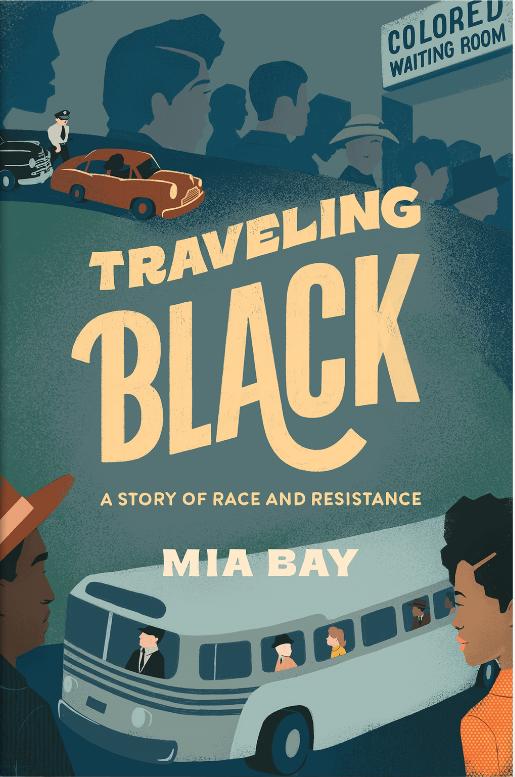Sixty-four years before Rosa Parks refused to give up her bus seat to a white man during the 1955 Montgomery, Alabama bus boycott, another Black woman, activist Ida B. Wells resisted Tennessee train segregation laws and took her case to the State Supreme Court.
For historian Dr. Mia Bay, Well’s act of resistance during the dangerous Jim Crow era sparked further investigation into how defiance of 19th-century transportation segregation helped pave the way to the Civil Rights Movement.
It was an image that would stay with her for a decade since writing about it in her 2010 book To Tell the Truth Freely: The Life of Ida B. Wells.
 Bay says the story of Ida B. Wells being thrown out of the “Ladies Car” of the train because of her race stayed on the back burner as she continued to write other books, but that eventually she went down the research rabbit hole to sleuth out the wider story of how racial segregation on the “Jim Crow coaches,” trains, steamers, and planes became a structural component of white supremacy.
Bay says the story of Ida B. Wells being thrown out of the “Ladies Car” of the train because of her race stayed on the back burner as she continued to write other books, but that eventually she went down the research rabbit hole to sleuth out the wider story of how racial segregation on the “Jim Crow coaches,” trains, steamers, and planes became a structural component of white supremacy.
For her effort, Bay, Washington College’s 2021-2022 Patrick Henry History Fellow, and professor of American History at the University of Pennsylvania just received the prestigious Bancroft Prize in History for her book Traveling Black: A story of Race and Resistance.
Currently working on a book about Black perceptions of Thomas Jefferson, Bay recently sat down with the Spy to talk about how travel segregation began and how it was relentlessly challenged in the courts primarily by African American women.
The Patrick Henry History Fellowship is cosponsored by Washington College’s Starr Center for the Study of the American Experience and the Rose O’Neill Literary House.
This video is approximately minutes in length. More information may be found here.



Write a Letter to the Editor on this Article
We encourage readers to offer their point of view on this article by submitting the following form. Editing is sometimes necessary and is done at the discretion of the editorial staff.